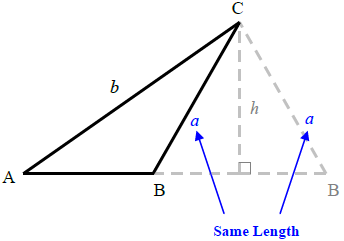“This SP7 was made in collaboration with William de Leon_. Please visit the other awesome posts on their blog by going williamdperiod5.blogspot.com
Monday, March 31, 2014
Friday, March 28, 2014
I/D #3 unit Q
Where does sin2x+cos2x=1 come from to begin with (think Unit Circle!). You should be referring to Unit Circle ratios and the Pythagorean Theorem in your explanation.
An identity is any proven facts and formulas tht are always true. We have the unit circle in which we have our magic 5 pair. We get sin2x +cos2x =1. If we get any value on the unit circle like radical 3/2,1/2.if we do the math we end up getting the overall answer to equal 1
Inquiry reflection activity.
If I had to describe trigonometry in THREE words, they would be…
An identity is any proven facts and formulas tht are always true. We have the unit circle in which we have our magic 5 pair. We get sin2x +cos2x =1. If we get any value on the unit circle like radical 3/2,1/2.if we do the math we end up getting the overall answer to equal 1
Inquiry reflection activity.
If I had to describe trigonometry in THREE words, they would be…
Thursday, March 27, 2014
Wpp#13/14 unit p
This WPP13-14 was made in collaboration with Damian Gomez and William de leon. Please visit the other awesome posts on their blog by going To damiangperiod5.blogspot.com And willaimdleonperiod5.blogspot.com
Monday, March 17, 2014
BQ #1 Unit P
Law of Sines - Why is SSA ambiguous?
The ambiguous case occurs when one uses the law of sines to determine missing measures of a triangle when given two sides and an angle opposite one of those angles. In some cases we have zero,one or two solutions. I such cases we assume that there are two possible triangles and we know we are done when we hit a wall.

The above picture is an example of a one possible solution triangle. As we can see that it gives us two sides and one angle. We first start by finding the missing angles. We use the law of sine to find the "bridge" to the other triangle. Its usually the the same side and angle.
Area formulas - How is the “area of an oblique” triangle derived? How does it relate to the area formula that you are familiar with?
The area of an oblique triangle is derived by having two side and one angle.
REFERENCE
http://www.gradeamathhelp.com/law-of-sines.html
The ambiguous case occurs when one uses the law of sines to determine missing measures of a triangle when given two sides and an angle opposite one of those angles. In some cases we have zero,one or two solutions. I such cases we assume that there are two possible triangles and we know we are done when we hit a wall.

The above picture is an example of a one possible solution triangle. As we can see that it gives us two sides and one angle. We first start by finding the missing angles. We use the law of sine to find the "bridge" to the other triangle. Its usually the the same side and angle.
Area formulas - How is the “area of an oblique” triangle derived? How does it relate to the area formula that you are familiar with?
The area of an oblique triangle is derived by having two side and one angle.
REFERENCE
http://www.gradeamathhelp.com/law-of-sines.html
Thursday, March 6, 2014
WPP #12 Unit 0 concept 10
Wall jump
A) A man wants to jump a wall from the ground. The angle of elevation is 25 degrees 21 minutes. If the base of the wall is 32 feet away from the man, how tall is the wall?
B) The same man now stands atop the wall. He measures the angle of depression to be 26 degrees 2 minutes from a hole in the ground. He knows that he is 27 feet higher than the base. How long is the hole?
A
B
Tuesday, March 4, 2014
I/D1: Unit O - Derive the SRTS
1.Inquiry Activity Summary
For this activity we are asked to find how to the srt of special right triangles. We see that we are given that the side us equal to 1.We are able to get the values that is the formula. We see that the variable n is in a relationship with all sides that have a connection together.
O
We have an equilateral triangle whose sides equal 1. For us to get the sides ,we have to cut the triangle in half . It gives us a 30,60,90 triangle. We see what we have and notice right away that one side of the triangle is split in one half . So we have two 1/2's and a 1 side We can use the Pythagorean theorem to help gwt the other values.
Inquiry Activity Reflection
Something I never noticed before about special right triangles I that the triangle value works for any triangle that has limited information.
O
We have an equilateral triangle whose sides equal 1. For us to get the sides ,we have to cut the triangle in half . It gives us a 30,60,90 triangle. We see what we have and notice right away that one side of the triangle is split in one half . So we have two 1/2's and a 1 side We can use the Pythagorean theorem to help gwt the other values.
Inquiry Activity Reflection
Something I never noticed before about special right triangles I that the triangle value works for any triangle that has limited information.
Subscribe to:
Comments (Atom)




